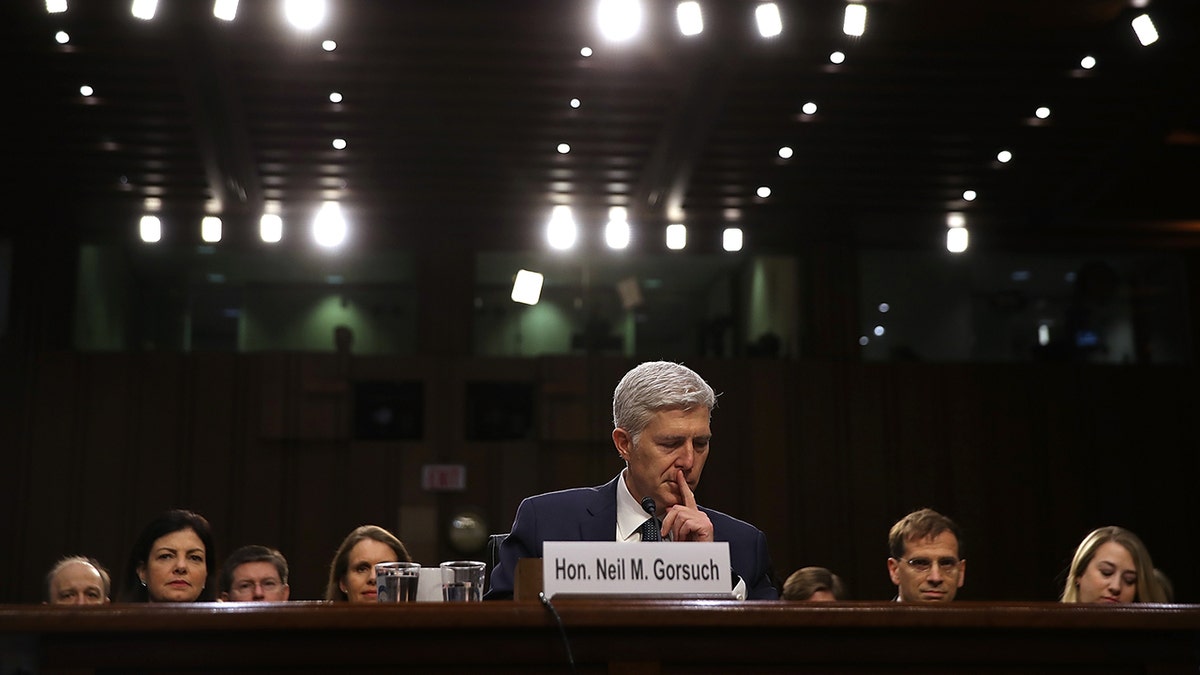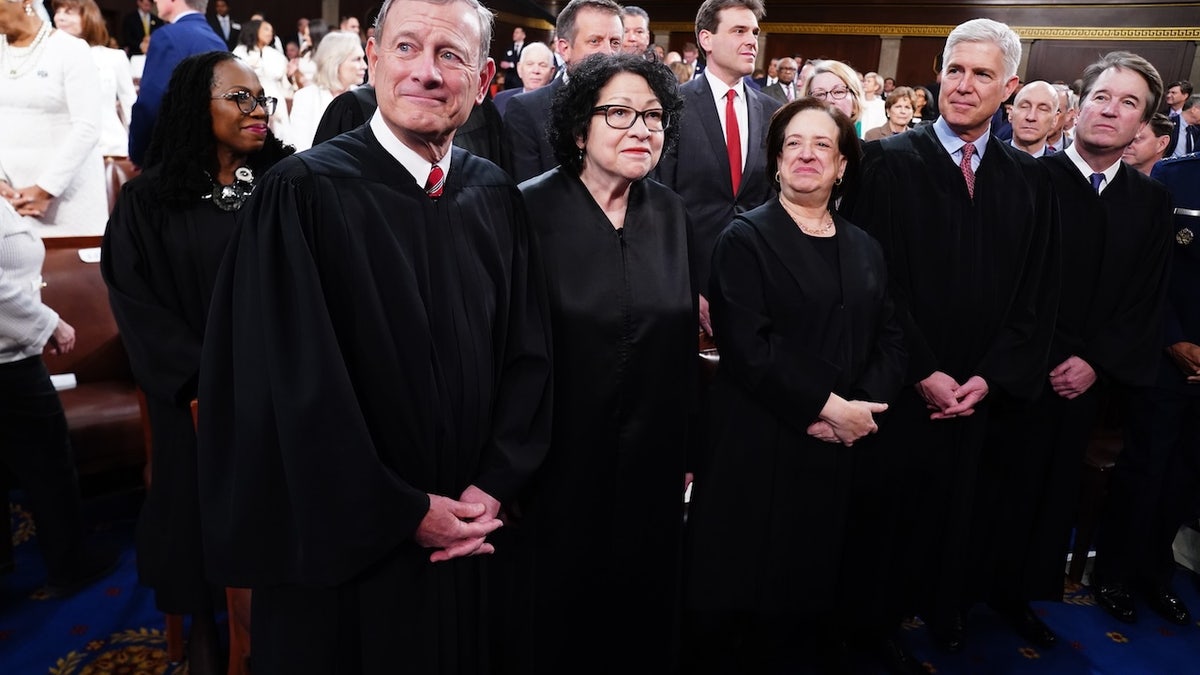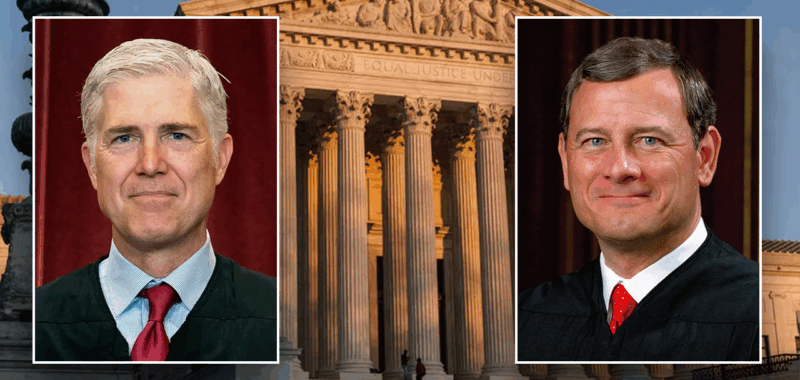Supreme Court Justice Neil Gorscuh and Chief Justice John Roberts on Tuesday sided with left-leaning justices on the court in an immigration appeals case, a narrow ruling that could portend the court’s future thinking amid a flurry of legal cases centered on immigration.
The 5-4 ruling in Monsalvo Velazquez v. Bondi centered on the government’s interpretation of a 60-day “voluntary departure” deadline, which authorities can use to allow certain immigrants deemed to be of “good moral character” to depart the U.S. on their own terms within that timeframe.
The Supreme Court ruled, with the backing of Robert and Gorsuch, that any voluntary departure deadlines for immigrants under the 60-day departure time frame that fall on a weekend or on a legal holiday in the U.S. should be extended to the next business day.
FEDERAL JUDGE ORDERS HALT TO TRUMP ADMIN’S CFPB TERMINATIONS

Neil Gorsuch testifies during his Supreme Court confirmation hearing before the Senate Judiciary Committee on March 22, 2017, in Washington, D.C. (Justin Sullivan/Getty Images)
Writing for the majority, Gorsuch noted that this interpretation of the 60-day period aligns with long-standing administrative practices, including in immigration law.
When Congress adopts a new law against the backdrop of a ‘long-standing administrative construction,’ the Court generally presumes the new provision works in harmony with what came before,” Gorsuch said.
“Since at least the 1950s, immigration regulations have provided that when calculating deadlines, the term ‘day’ carries its specialized meaning by excluding Sundays and legal holidays (and later Saturdays) if a deadline would otherwise fall on one of those days,” Gorsuch added, noting that the 1996 Illegal Immigration Reform and Immigrant Responsibility Act passed by Congress uses the same reading.
Gorscuh was joined in the majority decision by Chief Justice John Roberts, and Justices Sonia Sotomayor, Elena Kagan and Ketanji Brown Jackson.
The court’s ruling overturns the decision of the 10th Circuit Court of Appeals, and the Board of Immigration Appeals, which had voted to reject that interpretation in the case of Monsalvo Velázquez, a 32-year-old Colorado resident targeted for removal in 2019.
And while the case in question centers largely on the technicalities of certain immigration proceedings, the slim majority ruling could offer early signs of the court’s thinking as justices gear up for a flurry of high-profile immigration cases – including cases centered on due process protections for migrants, and on nationwide injunctions that block Trump’s birthright citizenship ban from taking force.
SUPREME COURT TO HEAR ORAL ARGUMENTS IN BIRTHRIGHT CITIZENSHIP CASE

Chief Justice John Roberts and Justices Sotomayor, Kagan, Gorsuch and Kavanaugh arrive for President Biden’s 2024 State of the Union at the Capitol. (Shawn Thew-Pool/Getty Images)
Justices Clarence Thomas, Samuel Alito, Brett Kavanaugh and Amy Coney Barrett dissented, noting that, in their view, the court lacked jurisdiction to weigh in on the matter.
While Thomas said he would have remanded the case back to the lower circuit court to consider other outstanding issues, and Barrett took issue with the nature of the appeal filed by Monsalvo, Alito said in a separate dissenting opinion that he viewed the court’s interpretation as a whole as incorrect.
In his view, the 60-day period imposed by the government is straightforward, and should include weekends.
“There will always be a sympathetic pro se alien who is a day or two late,” Alito said. “Unless the Court is willing to extend the statutory deadline indefinitely, it would presumably be forced to say in such cases that a day too late is just too bad.”
“For this reason, sympathy for petitioner cannot justify the Court’s decision,” he said.
CLICK TO GET THE FOX NEWS APP
The narrow ruling comes just weeks before May 15, when justices are slated to hear oral arguments in a case challenging President Donald Trump’s attempt to end birthright citizenship in the U.S.
The case is considered one of the most highly anticipated ones to be reviewed by the high court since Trump took office.

